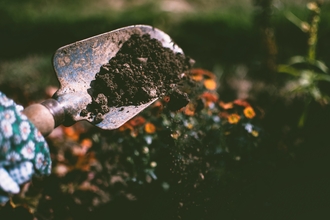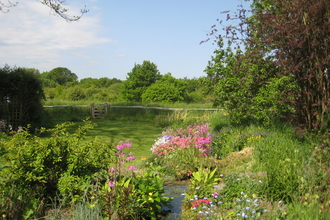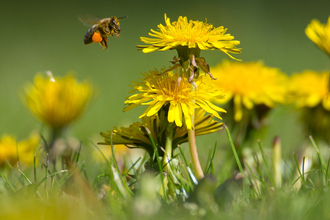Growing your own food is a positive way to respond to the worry of the Coronavirus pandemic. Apart from doing something productive, spending time outside with nature improves our mental and physical well-being. If you have children, growing fruit and vegetables is also a great way for them to learn about food production and the natural world. It involves so many skills that it should help with home education while the schools are closed.
Grow your own organic garden
©David Rea
I am always surprised by how few of the gardeners I visit grow their own fruit and vegetables. Perhaps I shouldn’t be surprised – it is in the vegetable garden that the challenges are greatest. But so too are the rewards.
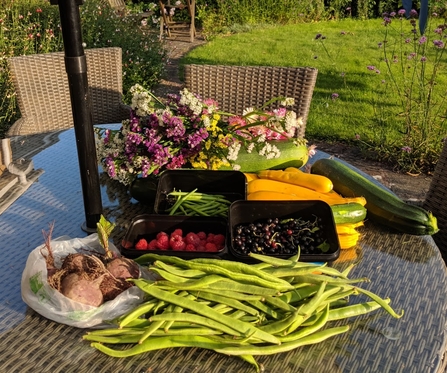
Produce from Penny and Peter Brook's organically cultivated allotment ©Penny Brook
Wildlife gardeners do their best to grow their fruit and vegetables in harmony with nature rather than constantly fighting it, so many garden organically. Organic vegetable gardeners usually make their own compost and leaf-mould. This is not just good for soils and plants, but can also create excellent wildlife habitats for grass snakes, slow worms and a million minibeasts. Gardeners who produce their own compost do not degrade other environments by using peat. And recycling garden ‘waste’ is a great contribution to sustainability.
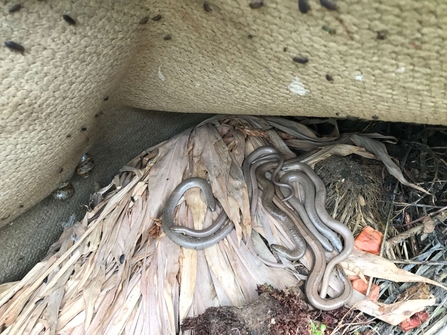
Wildlife in Penny and Peter Brook’s garden compost heap: slow worms, snails and woodlice ©P Brook
As Advisors visit different gardens we share advice from our own experience and from other gardens we have visited. I went to a fabulous garden in Bromley where the gardener was successfully using the Three Sisters system, originally from Central America. Sweet corn plants provide support for climbing beans (whose nitrogenous nodules feed the corn) and squash plants act as ground cover and help prevent evaporation from the soil. This is a very successful form of companion planting, though if you try it you may want to restrict your beans to the outer edges of the plot to enable easy picking.
Sharing ideas like this is one way of encouraging others to persevere with growing their own food. Just think of all the benefits, from cutting down on meat eating (known to be one of the best ways individuals can ‘save the planet’) to reducing your carbon footprint if your food doesn’t have to be transported half-way across the world. And you will know that other environments have not been damaged with pesticides or by using excessive water to produce the food you buy.
Using compost and such growing methods will help to produce healthy plants which will be better able to resist pests. However, many gardeners do worry about managing pests in a wildlife-friendly way. In the next blog, I will give some interesting insights into pests and how they fit into a garden’s ecosystem as well as practical tips on how to deal with them.
Further information
Kent Wildlife Trust’s Wild about Gardens scheme is offering advice by telephone this year. You can enter your garden into the scheme online and our trained Wild about Garden volunteers will do their best to answer your questions.
Useful resources:
